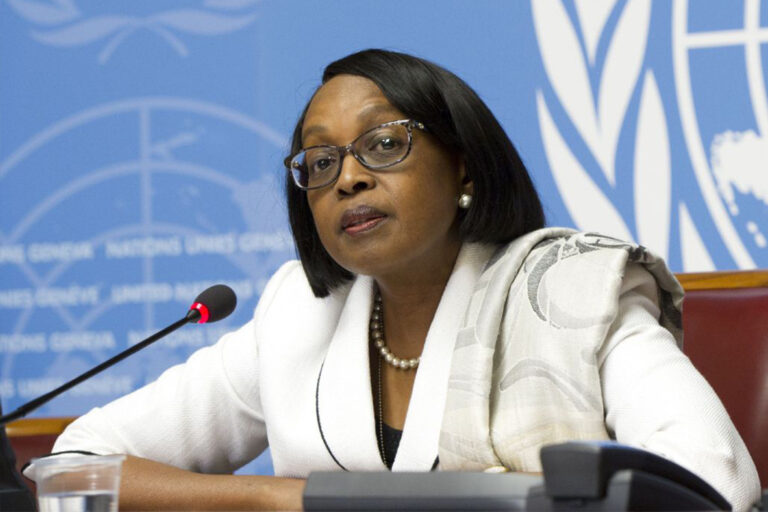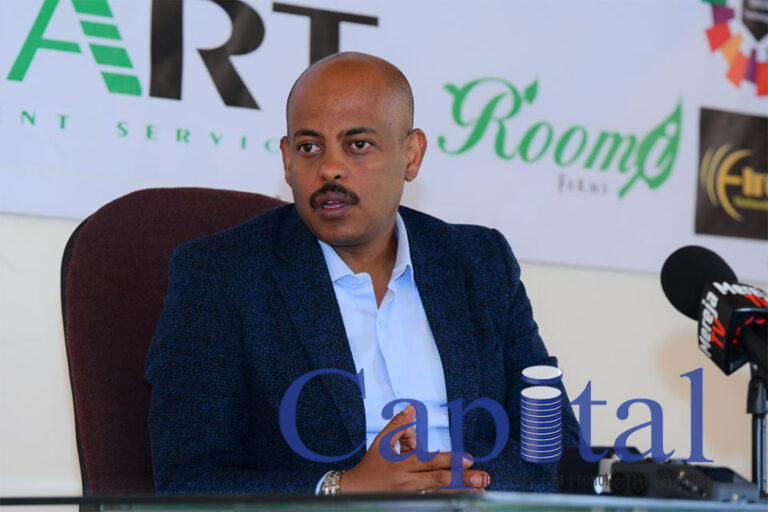Public health systems in Africa are coming under severe strain as the unprecedented COVID-19 pandemic persists. But as countries battle to bring the outbreak under control, efforts must also be maintained on other health emergencies and progress made against diseases such as malaria or polio preserved, the World Health Organization (WHO) urged.
Prior to the arrival of the novel coronavirus in Africa, WHO was stressing the need for countries to ensure the continuity of routine essential health services. “An overburdened health system not only undermines the effectiveness of the response to COVID-19 but may also undermine the response to a whole host of preventable threats to human health. Even brief interruptions of vaccination make outbreaks more likely to occur, putting children and other vulnerable groups more at risk of life-threatening diseases” WHO said in a statement.
“I urge all countries to not lose focus on their gains made in health as they adapt to tackle this new threat,” said Dr Matshidiso Moeti, WHO Regional Director for Africa. “We saw with the Ebola Virus Disease outbreak in West Africa that we lost more people to malaria, for instance than, we lost to the Ebola outbreak. Let us not repeat that with COVID-19.”
Confirmed COVID-19 cases in Africa continue to rise, now exceeding 28,000. WHO is supporting countries in all aspects of the COVID-19 response and has recently published guidelines for ensuring the continuation of critical health services, including immunization and anti-malaria campaigns. The guidelines stress the need for countries to take a dynamic approach that mitigates any unavoidable pause in vaccination campaigns.
The consequences of disrupting efforts to control malaria in Africa could be particularly grave. Current estimates suggest that sub-Saharan Africa accounted for approximately 93% of all malaria cases and 94% of deaths, mainly among children under five. A new analysis by WHO and partners suggests that in a worst case scenario if malaria prevention and treatment services were severely disrupted as a result of COVID-19, the number of malaria deaths in 2020 in sub-Saharan Africa could rise to double the number in 2018.
“Africa has made significant progress over the past 20 years in stopping malaria from claiming lives. While COVID-19 is a major health threat, it’s critical to maintain malaria prevention and treatment programmes. The new modelling shows deaths could exceed 700 000 this year alone. We haven’t seen mortality levels like that in 20 years. We must not turn back the clock,” said Dr Moeti.
There are countries like Benin, the Democratic Republic of the Congo, Sierra Leone, Chad, Central African Republic, Uganda and Tanzania which are continuing with their insecticide treated bed net campaigns and other important malaria prevention activities. Countries are adapting their malaria strategies to the current complex situation.
Another essential health service is immunization. The response to COVID-19 has already disrupted vaccination efforts on the continent. Despite considerable progress on immunization, one in four African children remain under-immunized. Measles vaccination campaigns in Chad, Ethiopia, Nigeria and South Sudan have already been suspended because of COVID-19, leaving approximately 21 million children who would have otherwise been vaccinated unprotected.
WHO urges countries not to let COVID-19 eclipse other health issues
Poll reveals African businesses expect their revenues to decrease sharply by next month
In a live poll conducted by Africa.com on April 22 as part of its webinar series, Crisis Management for African Business Leaders, which Capital is the official media partner, nearly 70% of webinar participants predicted that their business revenue will decrease by more than 10% next month. 47% indicated that they expect their revenue to decrease by more than 25% next month, and 24% indicated that they expect revenues to decrease by more than 50% next month. Only 20% indicated that they expect revenue to remain the same or increase.
Approximately 1,500 business leaders participated in the poll. Participants came from 41 countries across the African continent, with the largest representation coming from Nigeria, followed by South Africa, Kenya, Ghana and Ethiopia. 60% of the participants have one of the following titles: CEO, managing director, president, principal, partner, CFO, chair, chief, director, executive director, group head, general manager, or manager. Of the remaining 40%, the leading titles are analyst and consultant.
The largest sectors represented are financial services and professional services, followed by energy and manufacturing. A smaller tier consisted of real estate, health care, agriculture, health care, and media, arts & entertainment.
The live poll preceded a panel discussion on Liquidity – Managing Cash Flow When Sources of Revenue and Funding Dry Up moderated by Kunle Elebute, Chair, KPMG, with the following panelists: Welela Dawit, CFO, GE; Admassu Tadesse, President and Chief Executive of the Eastern and Southern African Trade and Development Bank (TDB); and Sim Tshabalala, Chief Executive, Standard Bank Group.
Africa.com Chair and CEO Teresa Clarke commented “the poll results are supported by the qualitative data we collected from the 10,000 registrants for the webinar series. We asked registrants what their greatest concern is with respect to COVID-19. Responses were open ended, and we received 10,000 responses ranging from 10-100 words. By far, the greatest concern expressed was reduction in revenue. But interestingly, many commented that while they were concerned about revenues, it was because they were concerned about being able to pay their employees. One respondent commented, ‘In Africa, we care more about people than profits.’”
The panel discussion is part of a four part series on crisis management developed by Africa.com and three faculty members from Harvard Business School. The next webinar discussion will take place on Wednesday, April 29, and is moderated by Hakeem Belo-Osagie, Chair of FSDH Merchant Bank and Harvard Business School Senior Lecturer of Business Administration. That webinar is entitled “This isn’t the West – How Africa’s Informal Sector Reacts to COVID-19.”
Smart Management Services wants to involve in urban agriculture
Smart Management Service has come up with a response to expand the urban agriculture expansion program that the Addis Ababa City Administration announced.
in his tweet on April 21, Takele Uma, Deputy Mayor of Addis Ababa, stated that the city will expanded urban farming, which is considered as one of the alternatives for feeding the city’s population, and called interested body to be involved in the training and sharing experience.
“If you have a passion and any formal education in agriculture we need you! We will assign designated land for building the urban agriculture capacity in the city to address the growing demand. Let’s feed this city through modern agriculture,” the mayor tweeted.
Adil Abdela (PHD), CEO of Smart Management Service, said that his company has already finalized its preparation to respond for the call of the city administration.
He said that on the way to fill the required corporate social responsibility his company has concluded the readiness to give training on urban agriculture scheme that shall mitigate the effect of Covid 19 on the economy and that will generate income of urban dwellers.
“At the first stage we will provide training for about 100 households on urban farming besides providing hand tools that will let them engage on cultivation,” Adil said. “We will also provide other necessary inputs like seeds.”
“With our expertise at our companies we are highly interested to involve in the expansion of urban farming that is common in other countries including the developed nations, but infant in Ethiopia’s cities,” he added.
Takele also disclosed that he has been undertaken virtual discussion with urban agriculture experts and those that are already engaged and become successful in urban farming.
He said that the discussion was raised the urban agriculture that shall be conducted on residential compound and small houses.
“We also understood this include residents at the rivers banks in the city,” the Deputy Mayor said in his tweet on April 21.
Adil said that the city administration has a plan to expand the urban agriculture by including the river banks in the city, while the training that will be given by Smart Management Service, which is a company that manages several business including Roomi Agro Processing and Ethopis College, mainly focus on the skill development to conduct farming on small residential area besides the river banks development.
“We believe that very successful results will be gained in small areas,” the CEO added.
Due to coronavirus the training will be conducted on the technology base and open areas with different very small groups, according to Adil.
He said that the training will commence in the coming few days meanwhile it depend on the city administration schedule.
Adil reminded that Smart Management Service is engaged in several corporate social responsibilities in the past decade. “Under our initiative Music Mayday Ethiopia we have provided training on art and music for those who do not have opportunity and created job opportunity for 1,700 youths,” he said.
For the new initiative the company has allocated one million birr for the training and another one million birr to support residents to be engaged on the activity.
New IFAD fund launched to help prevent rural food crisis in wake of COVID-19
With the COVID-19 pandemic and economic slowdown threatening the lives and livelihoods of the world’s most vulnerable people, the UN’s International Fund for Agricultural Development (IFAD) today committed US$40 million, and launched an urgent appeal for additional funds, to support farmers and rural communities to continue growing and selling food.
IFAD’s new multi-donor fund, the COVID-19 Rural Poor Stimulus Facility, will mitigate the effects of the pandemic on food production, market access and rural employment. As part of the broader UN socio-economic response framework, the Facility will ensure that farmers in the most vulnerable countries have timely access to inputs, information, markets and liquidity. On top of its own contribution, IFAD aims to raise at least $200 million more from Member States, foundations and the private sector.
“We need to act now to stop this health crisis transforming into a food crisis,” said Gilbert F. Houngbo, President of IFAD. “The fallout from COVID-19 may push rural families even deeper into poverty, hunger and desperation, which is a real threat to global prosperity and stability. With immediate action, we can provide rural people with the tools to adapt and ensure a quicker recovery, averting an even bigger humanitarian crisis.”




